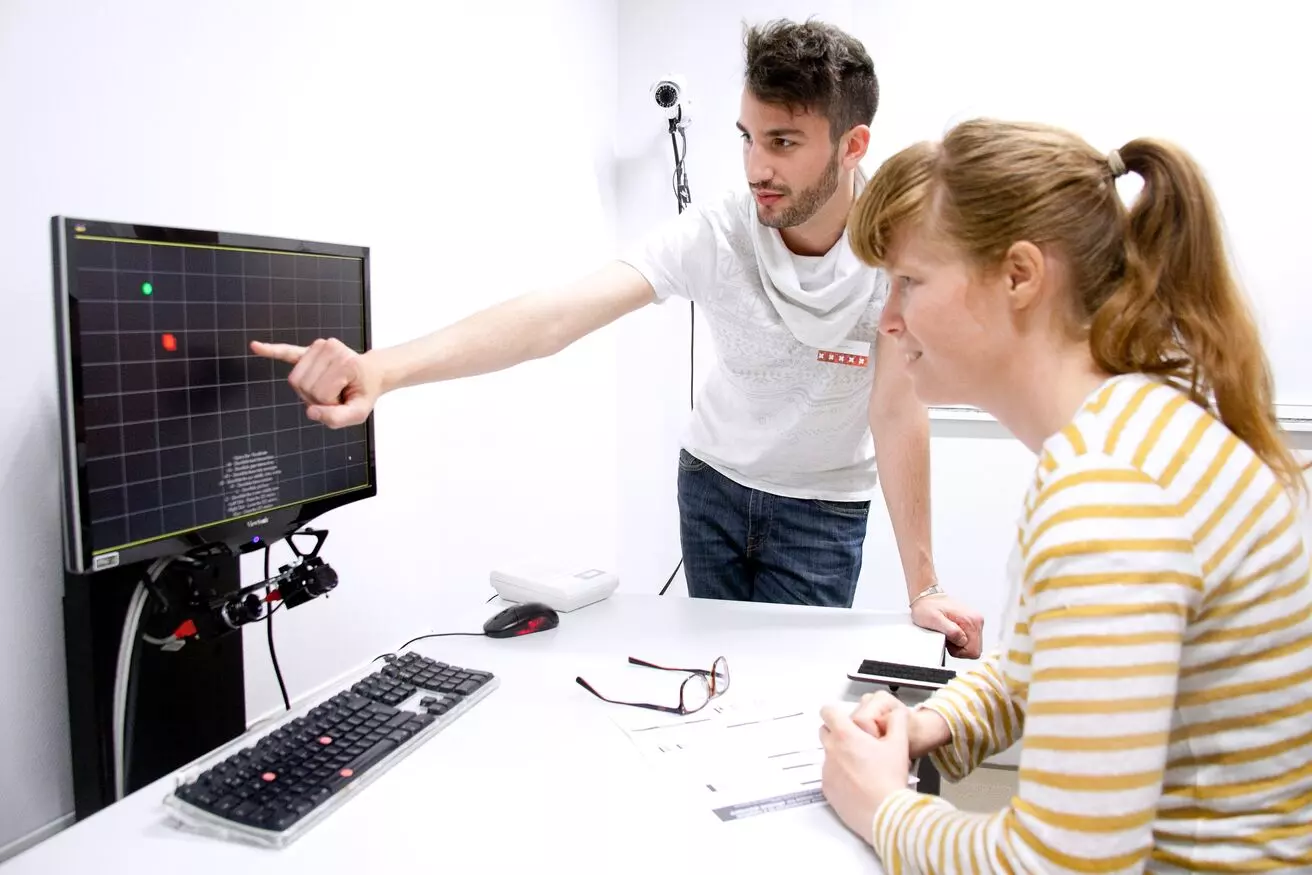
The Amsterdam School of Communication Research (ASCoR) seeks to hire an ambitious post-doc researcher who is interested in participating in a pandemic preparedness project. This position is focused on research into integrated decision-making on government regulations during a pandemic, considering mental health, and social, economic and societal effects.
Post-doc: Instruments for an Integral Assessment Framework for Future Pandemics
- Faculty of Social and Behavioural Sciences
- 14318
- PhD
- €4.537 - €6.209
- Maximum 38 hours
- Closes on27-07-2025

The Amsterdam School of Communication Research (ASCoR) seeks to hire an ambitious post-doc researcher who is interested in participating in a pandemic preparedness project. This position is focused on research into integrated decision-making on government regulations during a pandemic, considering mental health, and social, economic and societal effects.
Post-doc: Instruments for an Integral Assessment Framework for Future Pandemics
- Faculty of Social and Behavioural Sciences
- 14318
- PhD
- €4.537 - €6.209
- Maximum 38 hours
- Closes on27-07-2025
Working at the UvA
Join us!
In a ZonMw-funded project of 16 months, we aim to gain a better understanding of, among other things: (1) what are the key knowledge questions needed for integrated decision-making on pandemic mitigating measures to minimise the adverse health and societal effects of the pandemic as well as the potential policy measures; (2) what are the criteria for usable data to support integrated decision-making during a pandemic; (3) what research methods that meet these criteria are needed and available to answer the important knowledge questions, and (4) how relevant actionable knowledge can be communicated to decision-makers for the purpose of integrated decision-making. Methods include literature reviews and qualitative and quantitative interviews with experts
The post-doc will collaborate intensively with other post-docs examining, for example, physical health, vulnerable groups, and citizen engagement. This project is part of a work package within a large consortium involving over fifteen postdocs.

Working at the UvA
Join us!
In a ZonMw-funded project of 16 months, we aim to gain a better understanding of, among other things: (1) what are the key knowledge questions needed for integrated decision-making on pandemic mitigating measures to minimise the adverse health and societal effects of the pandemic as well as the potential policy measures; (2) what are the criteria for usable data to support integrated decision-making during a pandemic; (3) what research methods that meet these criteria are needed and available to answer the important knowledge questions, and (4) how relevant actionable knowledge can be communicated to decision-makers for the purpose of integrated decision-making. Methods include literature reviews and qualitative and quantitative interviews with experts
The post-doc will collaborate intensively with other post-docs examining, for example, physical health, vulnerable groups, and citizen engagement. This project is part of a work package within a large consortium involving over fifteen postdocs.
All about this vacancy
What are you going to do
Responsibilities include (but are not limited to):
- Literature reviews and individual and group interviews with experts and policy makers;
- Selecting and reviewing research methods;
- Developing a fact sheet template on effects of pandemic measures;
- Writing up findings for publication in scientific journals;
- Collaborating with a highly interdisciplinary group of scientists and other stakeholders.
Would you like to contribute to policy for better pandemic preparedness and collaborate in a large multidisciplinary team? Do you have a broad multidisciplinary background in the social and behavioral sciences? Then you might be interested in this post-doc research position. This 16-month postdoc position will start on September 1, 2025.
What do you have to offer
You have:
- A PhD in Communication Science or a closely related discipline;
- Proven experience in pandemic preparedness research;
- Scientific creativity and productivity, as demonstrated in recent publications in international peer-reviewed journals and peer-reviewed conferences;
- Thorough knowledge of and skills in qualitative and quantitative (interview) studies with professionals;
- A proven background in interdisciplinary social scientific research;
- The ability to work both independently and as part of a team;
- An excellent written and spoken command of the English language;
- Excellent social and organizational skills.
You are:
- Proven ability to think across disciplines and integrate knowledge from different academic disciplines (e.g., communication sciences, health psychology, social sciences, economics);
- A team player with proven strong interpersonal skills and experience in building contact with colleagues, experts, policy makers, and other stakeholders;
- Passionate about contributing through your research to future pandemic preparedness;
- Motivated to share your knowledge with both academic and non-academic audiences;
- Strongly committed to methodological rigor and scientific integrity (including Open Science).
What else do we offer you
We offer a temporary contract for 16 months for 0.8 fte to 1.0 fte (30.4-38.0 hours a week),. The Collective Labour Agreement of Dutch Universities (CAO NU) is applicable.
The intended start date for this function is September 1, 2025.
The gross monthly salary based on full-time employment (38 hours per week) ranges from €4.537 up to a maximum of €6.209 gross per month (scale 11). This is exclusive 8% holiday allowance and 8,3% end-of-year bonus.
The Department of Communication at the UvA offers the option to combine the research tasks with teaching tasks, in which case the appointment can be extended to 1 fte.
All about this vacancy
What are you going to do
Responsibilities include (but are not limited to):
- Literature reviews and individual and group interviews with experts and policy makers;
- Selecting and reviewing research methods;
- Developing a fact sheet template on effects of pandemic measures;
- Writing up findings for publication in scientific journals;
- Collaborating with a highly interdisciplinary group of scientists and other stakeholders.
Would you like to contribute to policy for better pandemic preparedness and collaborate in a large multidisciplinary team? Do you have a broad multidisciplinary background in the social and behavioral sciences? Then you might be interested in this post-doc research position. This 16-month postdoc position will start on September 1, 2025.
What do you have to offer
You have:
- A PhD in Communication Science or a closely related discipline;
- Proven experience in pandemic preparedness research;
- Scientific creativity and productivity, as demonstrated in recent publications in international peer-reviewed journals and peer-reviewed conferences;
- Thorough knowledge of and skills in qualitative and quantitative (interview) studies with professionals;
- A proven background in interdisciplinary social scientific research;
- The ability to work both independently and as part of a team;
- An excellent written and spoken command of the English language;
- Excellent social and organizational skills.
You are:
- Proven ability to think across disciplines and integrate knowledge from different academic disciplines (e.g., communication sciences, health psychology, social sciences, economics);
- A team player with proven strong interpersonal skills and experience in building contact with colleagues, experts, policy makers, and other stakeholders;
- Passionate about contributing through your research to future pandemic preparedness;
- Motivated to share your knowledge with both academic and non-academic audiences;
- Strongly committed to methodological rigor and scientific integrity (including Open Science).
What else do we offer you
We offer a temporary contract for 16 months for 0.8 fte to 1.0 fte (30.4-38.0 hours a week),. The Collective Labour Agreement of Dutch Universities (CAO NU) is applicable.
The intended start date for this function is September 1, 2025.
The gross monthly salary based on full-time employment (38 hours per week) ranges from €4.537 up to a maximum of €6.209 gross per month (scale 11). This is exclusive 8% holiday allowance and 8,3% end-of-year bonus.
The Department of Communication at the UvA offers the option to combine the research tasks with teaching tasks, in which case the appointment can be extended to 1 fte.
Your place at the UvA
In this team you will work
You will join the ‘Persuasive Communication’ programme group at the Amsterdam School of Communication Research (ASCoR) of the UvA that is experienced in pandemic preparedness projects.
You will also be part of the Unity consortium, which is a collaboration between nine University Medical Centres, universities, and knowledge institutes. The consortium is coordinated by the Pandemic and Disaster Preparedness Center of Erasmus UMC.
The Amsterdam School of Communication Research (ASCoR) is the research institute of the Communication Science department at the Faculty of Social and Behavioural Sciences.
We offer a dynamic and inspiring work environment with a variety of duties and ample scope for own initiative and further professional development and education.
About the Faculty of Social and Behavioural Sciences
The Faculty of Social and Behavioural Sciences (FMG) is the largest educational and research institution in the field of social and behavioural sciences in Europe.
Here, we explore societal and human-centered issues, driven by scientific curiosity but also with an eye for current themes. For example, the impact of media and communication on individuals and society, healthcare challenges, global urbanization, human development, the role of political institutions, understanding the human mind, growing inequality, diversity issues, and changing social relationships.
In Europe and beyond, the FMG holds a leading position, thanks in part to its more than 1,300 staff members who contribute to education and research. Will you be one of them?
Your place at the UvA
This is where you will be working
In this team you will work
You will join the ‘Persuasive Communication’ programme group at the Amsterdam School of Communication Research (ASCoR) of the UvA that is experienced in pandemic preparedness projects.
You will also be part of the Unity consortium, which is a collaboration between nine University Medical Centres, universities, and knowledge institutes. The consortium is coordinated by the Pandemic and Disaster Preparedness Center of Erasmus UMC.
The Amsterdam School of Communication Research (ASCoR) is the research institute of the Communication Science department at the Faculty of Social and Behavioural Sciences.
We offer a dynamic and inspiring work environment with a variety of duties and ample scope for own initiative and further professional development and education.
About the Faculty of Social and Behavioural Sciences
The Faculty of Social and Behavioural Sciences (FMG) is the largest educational and research institution in the field of social and behavioural sciences in Europe.
Here, we explore societal and human-centered issues, driven by scientific curiosity but also with an eye for current themes. For example, the impact of media and communication on individuals and society, healthcare challenges, global urbanization, human development, the role of political institutions, understanding the human mind, growing inequality, diversity issues, and changing social relationships.
In Europe and beyond, the FMG holds a leading position, thanks in part to its more than 1,300 staff members who contribute to education and research. Will you be one of them?
Important to know
Your application & contact
Diversity, Equity & Inclusion
As an employer, the UvA maintains an equal opportunities policy. We value diversity and are fully committed to being a place where everyone feels at home. We nurture inquisitive minds and perseverance and allow room for persistent questioning. With us, curiosity and creativity are the prevailing culture.
Important to know
Your application & contact
As an employer, the UvA maintains an equal opportunities policy. We value diversity and are fully committed to being a place where everyone feels at home. We nurture inquisitive minds and perseverance and allow room for persistent questioning. With us, curiosity and creativity are the prevailing culture.
Other interesting vacancies for you

Postdoctoral Position on Estimation and Implications of Invisible Languages on the Internet
- Faculty of Social and Behavioural Sciences
- €4.537 - €6.209
- Closes on30-09-2025
- PhD
- 38 hours
University of Amsterdam’s Amsterdam School of Communication Research (ASCoR) invites applications for a fully funded Postdoctoral Researcher on our ‘Invisible Languages’ project. The postdoc appointee will assess grassroots and digital prevalence for more than 7000 languages currently spoken by humans across the globe, co-develop community interventions in collaboration with international partners, and develop large language model (LLM) frameworks with a dedicated focus on under-resourced languages.
View vacancy

Postdoctoral Researcher Evaluation & Training
- Faculty of Social and Behavioural Sciences
- €4.537 - €6.209
- PhD
- Closes on20-07-2025
Are you excited to dive ethnographically into a complex transdisciplinary project to understand lessons learned, build capacity and creatively communicate scientific results on disaster preparedness for people with vulnerabilities? Is your ambition to professionalize in applied social sciences, and lead the reflexive learning, evaluation, and training program for a European wide research project?
View vacancy

Postdoc on the Political Ecology of Construction Materials and Demolition Waste
- Faculty of Social and Behavioural Sciences
- €4.537 - €6.209
- Closes on15-08-2025
- PhD
- 38 hours
We are looking for a post-doctoral researcher able to investigate the political ecology of the construction industry and construction waste. Construction is still one of the most environmentally destructive and extractive industry in the economy and its existence is closely intertwined with uneven and unjust urbanization patterns. The postdoc will study the political power plays that drive this industry.
View vacancy
Other interesting vacancies for you

Postdoctoral Position on Estimation and Implications of Invisible Languages on the Internet
- Faculty of Social and Behavioural Sciences
- €4.537 - €6.209
- Closes on30-09-2025
- PhD
- 38 hours
University of Amsterdam’s Amsterdam School of Communication Research (ASCoR) invites applications for a fully funded Postdoctoral Researcher on our ‘Invisible Languages’ project. The postdoc appointee will assess grassroots and digital prevalence for more than 7000 languages currently spoken by humans across the globe, co-develop community interventions in collaboration with international partners, and develop large language model (LLM) frameworks with a dedicated focus on under-resourced languages.
View vacancy

Postdoctoral Researcher Evaluation & Training
- Faculty of Social and Behavioural Sciences
- €4.537 - €6.209
- PhD
- Closes on20-07-2025
Are you excited to dive ethnographically into a complex transdisciplinary project to understand lessons learned, build capacity and creatively communicate scientific results on disaster preparedness for people with vulnerabilities? Is your ambition to professionalize in applied social sciences, and lead the reflexive learning, evaluation, and training program for a European wide research project?
View vacancy

Postdoc on the Political Ecology of Construction Materials and Demolition Waste
- Faculty of Social and Behavioural Sciences
- €4.537 - €6.209
- Closes on15-08-2025
- PhD
- 38 hours
We are looking for a post-doctoral researcher able to investigate the political ecology of the construction industry and construction waste. Construction is still one of the most environmentally destructive and extractive industry in the economy and its existence is closely intertwined with uneven and unjust urbanization patterns. The postdoc will study the political power plays that drive this industry.
View vacancy

Don't miss out on your dream job!
Sign up for a job alert and you'll receive automatic updates about new and relevant vacancies.

Don't miss out on your dream job!
Sign up for a job alert and you'll receive automatic updates about new and relevant vacancies.
This website uses cookies
We, and third parties, use cookies on our website. We use cookies to ensure that our website functions properly, to store your preferences, to gain insight into visitor behavior, but also for marketing and social media purposes (showing personalized advertisements). By clicking 'Accept', you agree to the use of all cookies. In our Cookie Statement. you can read more about the cookies we use and save or change your preferences. By clicking 'Refuse' you only agree to the use of functional cookies.
